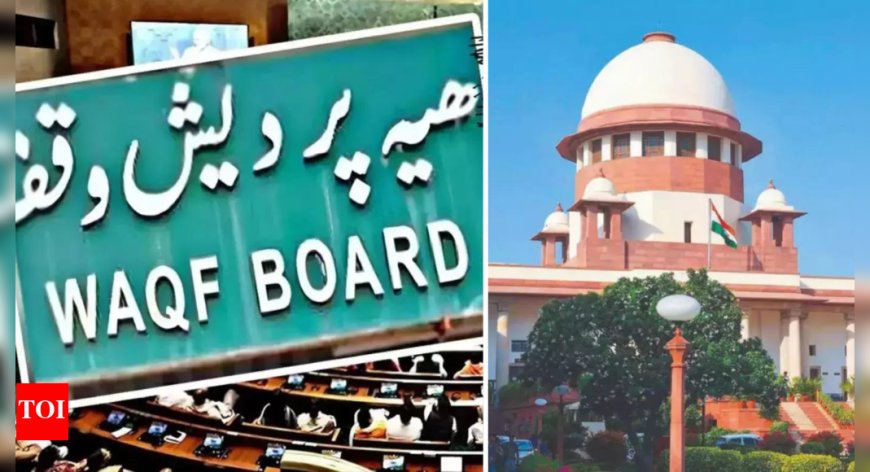SC to hear today bunch of pleas against provisions of '95 waqf Act
SC to hear today bunch of pleas against provisions of '95 waqf Act

Supreme Court to Hear Pleas Against Provisions of the '95 Waqf Act
News by dharmyuddh.com
Introduction
Today, the Supreme Court will consider a significant bundle of petitions challenging various provisions of the Waqf Act of 1995. This legislative framework was designed to regulate the management of Waqf properties across the country, ensuring their proper administration and use for socio-economic development within Muslim communities. However, several stakeholders believe that certain aspects of this act infringe upon their rights and threaten the management of Waqf properties.
Background of the Waqf Act, 1995
The Waqf Act of 1995 was enacted to provide a comprehensive system for the administration of Waqf properties in India. It focuses on the appointment of State Waqf Boards, the registration of Waqf properties, and the effective management of these assets. Despite its intentions, there have been growing concerns and legal challenges regarding the applicability and interpretation of its provisions.
Key Issues at Stake
Several petitions have emerged challenging specific sections of the Waqf Act. Among the principal issues are allegations of mismanagement of Waqf properties, disputes over land ownership, and claims of insufficient representation in the decision-making processes of Waqf Boards. Petitions argue that the existing legal framework does not adequately protect the rights of Waqf property stakeholders, which has led to numerous challenges in property disputes in lower courts.
The Supreme Court's Role
The Supreme Court’s decision today will not only impact the immediate parties involved but could also set a precedent for future legal challenges related to Waqf properties. By hearing these petitions, the court will evaluate whether the provisions of the Act align with constitutional rights and the principles of justice. Legal analysts anticipate that the ruling may address fundamental questions about property rights and the governance of religious endowments.
Conclusion
As the Supreme Court begins to hear the arguments, all eyes will be on the proceedings and the eventual ruling that could reshape the understanding and administration of Waqf properties under the 1995 Act. This case holds profound implications for the legal framework governing Waqf properties and for the communities reliant on these assets for their welfare and development.
For more updates, visit dharmyuddh.com. Keywords: Supreme Court hearing Waqf Act, provisions of Waqf Act 1995, challenges to Waqf properties, legal issues in Waqf Act, petitions against Waqf management, Waqf property disputes, implications of Waqf Act ruling, constitutional rights Waqf properties, Waqf Boards legal challenges, socio-economic impact of Waqf Act







